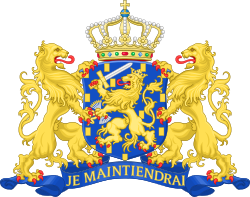Third Ruijs de Beerenbrouck cabinet | |
|---|---|
| Cabinet of the Netherlands | |
 The first meeting of the Third Ruijs de Beerenbrouck cabinet on 10 August 1929 | |
| Date formed | 10 August 1929 |
| Date dissolved | 26 May 1933 (Demissionary from 15 May 1933) |
| People and organisations | |
| Head of state | Queen Wilhelmina |
| Head of government | Charles Ruijs de Beerenbrouck |
| No. of ministers | 9 |
| Member party | Roman Catholic State Party Anti-Revolutionary Party Christian Historical Union |
| Status in legislature | Centre-right majority government |
| History | |
| Election | 1929 general election |
| Legislature terms | 1929–1933 |
| Predecessor | First De Geer cabinet |
| Successor | Second Colijn cabinet |
| Part of the Politics series |
 |
|---|
| |
The Third Ruijs de Beerenbrouck cabinet was the cabinet of the Netherlands from 10 August 1929 until 26 May 1933. The cabinet was formed by the political parties Roman Catholic State Party (RKSP), Anti-Revolutionary Party (ARP) and the Christian Historical Union (CHU) after the 1929 general election. The centre-right cabinet was a majority government in the House of Representatives. It was the last of three cabinets of Charles Ruijs de Beerenbrouck as Chairman of the Council of Ministers. [1] [2] [3]








